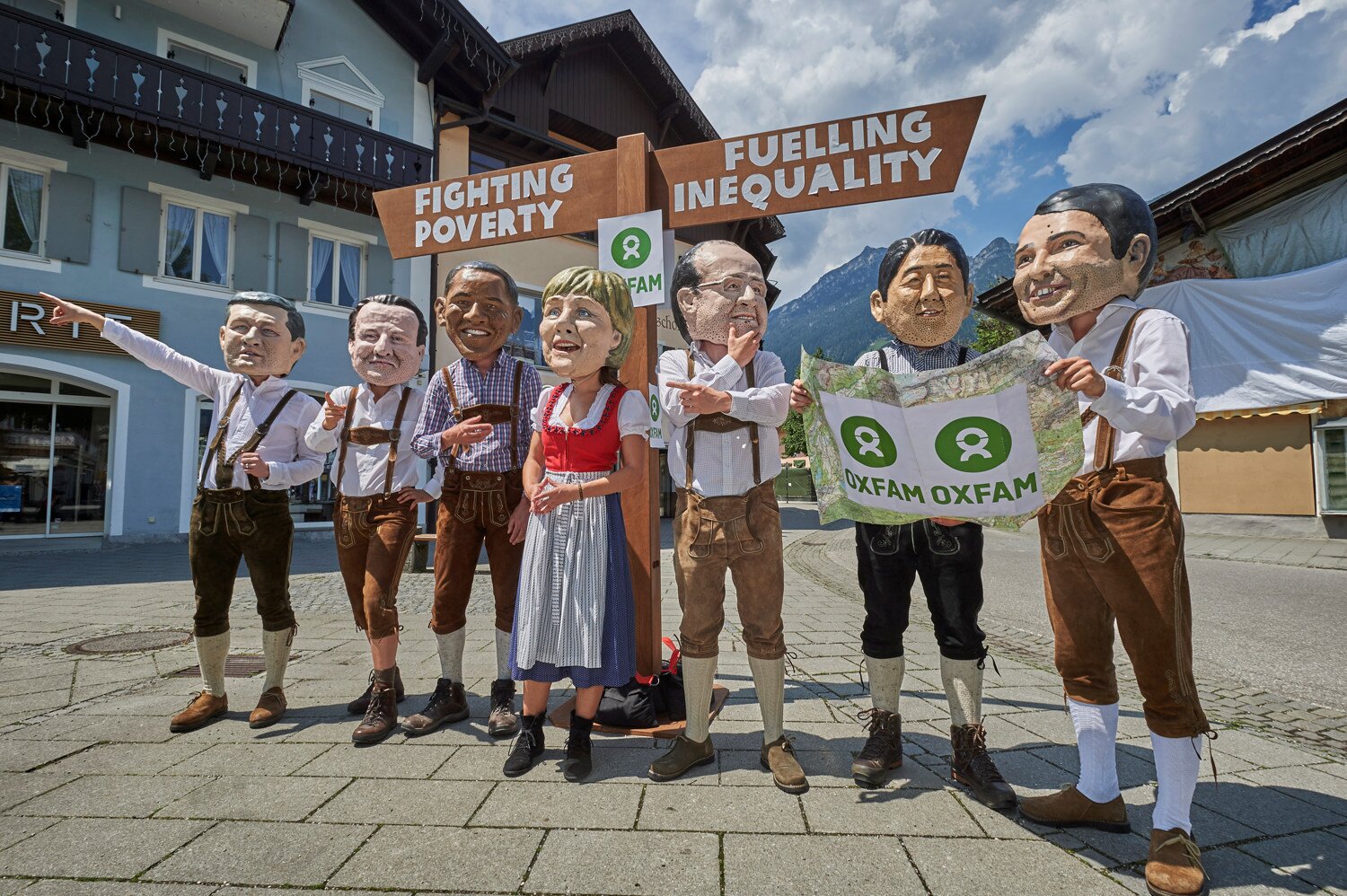2015年6月02日
G7 companies cheat Africa out of billions of dollars(只有英文版)
G7 based companies and investors cheated Africa out of an estimated US$6 billion in 2010 through just one form of tax dodging, according to a new Oxfam report ‘Money talks: Africa at the G7’, released today. This is equivalent to three times the amount needed to plug the healthcare funding gap in Ebola affected countries of Sierra Leone, Liberia, Guinea and Guinea Bissau.
Oxfam’s findings come as G7 leaders prepare to meet their African counterparts at their annual summit in Germany. Discussions will focus on how the G7 can support economic growth and sustainable development on the continent. Reforming global corporate tax rules so that African governments can claim the money owed to them is critical if Africa is to tackle extreme poverty and inequality, and continue its economic rise.
Oxfam is calling for G7 leaders to put action for ambitious tax reform on the summit agenda. The international agency is also calling for G7 leaders to attend, or send their Finance Ministers to, the Financing for Development Conference in Ethiopia in July. The Addis conference will set out how the world will finance development for the next two decades and is an opportunity for governments to start developing a more democratic and fairer global tax system.
Winnie Byanyima, Oxfam International’s Executive Director said, ‘Africa is haemorrhaging billions of dollars because multinational companies, many with headquarters in G7 countries, are cheating Africa out of vital tax revenues. If this tax revenue were invested in education and healthcare, societies and economies would further flourish across the continent.’
In 2010, the last year for which data is available, companies and investors based in G7 countries avoided paying tax on US$20 billion of income through a practice called trade mispricing – where a company artificially sets the prices for goods or services sold between its subsidiaries to avoid taxation. With corporate tax rates averaging out at 28 per cent in Africa, this equates to nearly US$6 billion in lost tax revenues. Trade mispricing is just one of the ways multinational companies avoid paying their fair share of taxes. According to United Nations Conference on Trade and Development (UNCTAD), developing countries as a whole lose an estimated US$100billion a year through another set of tax avoidance schemes involving tax havens.
Byanyima added, ‘G7 leaders must not be content to close tax loopholes at home while letting multinational companies sidestep their tax obligations in Africa. The G7 must make Africa an equal partner in international efforts to reform the dysfunctional tax system. Only then will Africa be able to collect the tax revenues it is owed and which it desperately needs to overcome extreme poverty and inequality.’
Existing international efforts to tackle corporate tax dodging such as the Base Erosion and Profit Shifting (BEPS) process, led by the Organisation for Economic Cooperation (OECD) for the G20, will leave gaping tax loopholes that multinational companies can continue to exploit across the developing world. Many African nations have been shut out of discussions on BEPS reform and will not benefit from them as a result.
- Ends -
G7 leaders depicted with huge heads and kitted out with walking boots and maps must get on the right path to overcome poverty and inequality.

